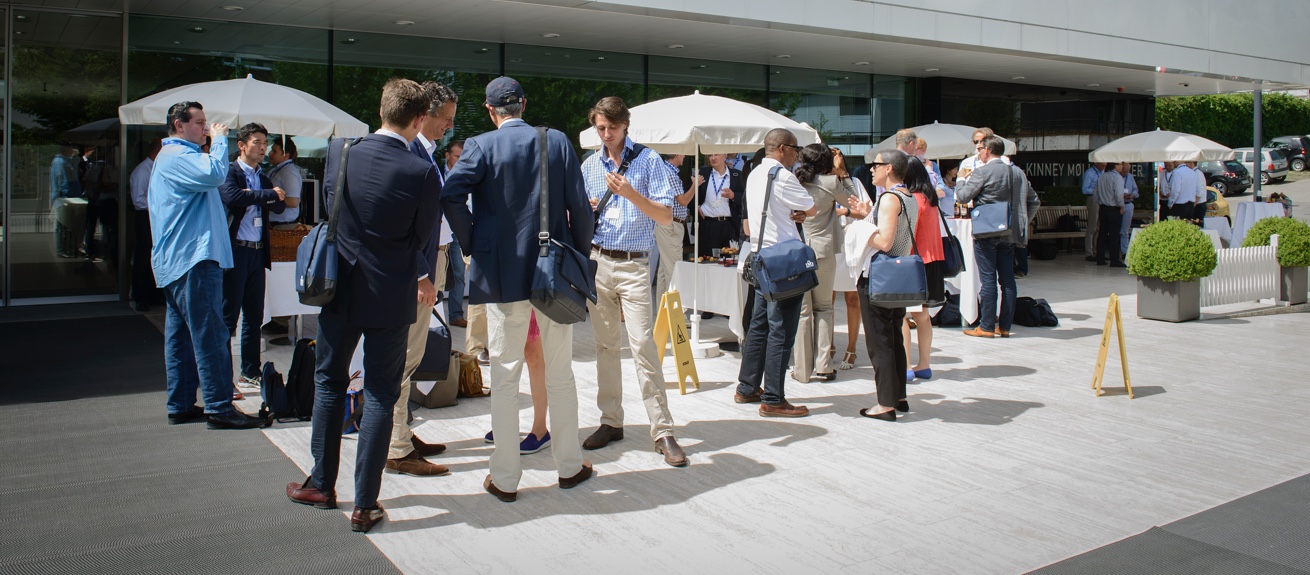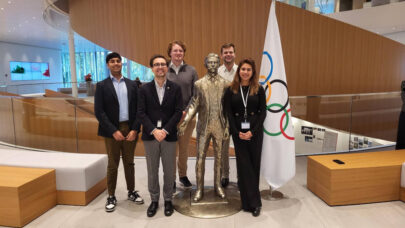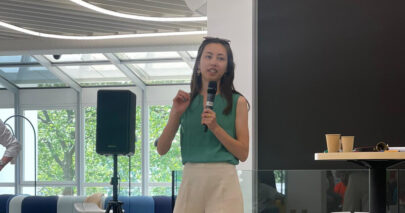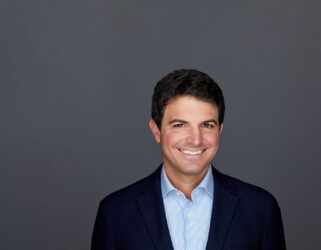
Istanbul is frequently said to be “the west of the east and the east of the west”. Are Istanbul and Turkey the best of both worlds or simply stuck in the middle? IMD’s MBA program headed to Istanbul to find out.
The IMD MBA has historically gone abroad for the Discovery Expeditions and the International Consulting Projects. Added to this list for the first time was last month’s post-exams trip to Istanbul for an extended weekend of lectures, historical excursions, company visits and the occasional party in the evening.
In Istanbul, west and east, Europe and the Middle East, religious devotion and secularism live together, cheek by jowl. This plays out in the fashion choices and lifestyles on show in the streets of Istanbul: in some areas finding a beer is like finding gold dust – in other districts, the beer and raki flows freely. A few museums we visited had started their lives as churches and later served as mosques.
The country may be in an incredibly strategic location but turmoil can be found on many of its borders. To the west, the Euro crisis is playing out in Greece. Over the Black Sea to the north, there are conflicts in Crimea and Eastern Ukraine. Along its southern flank, there is the seemingly never-ending chaos and carnage of the conflict in Syria and Iraq. Turkey may have had a policy of “no problems with the neighbours” but now most of its neighbours are only having problems. Turkey is seemingly very stuck in the middle of many regional travails.
Visiting both TAV, the operator of Istanbul Ataturk airport alongside many others around the region, and Turkish Airlines, we saw how Turkey’s geographical setting placed it ideally to be the bridge between so many locations. Much of Europe, the Middle East and North Africa can be reached from Turkey using narrow body regional aircraft such as Boeing 737s, allowing Turkish Airlines to operate efficient and frequent routes serving these key destinations. Both corporations were projecting very bullish growth. But the outlook for the economy in general seemed less bright.
In a very illuminating lecture, Professor Ümit Özlale of Özyeğin University showed that Turkey had been level-pegging with Italy in terms of GDP per head of population at the end of World War II but over past seventy years has been left lagging a long way behind. Looking forward to 2023, Turkey is forecast to remain stuck in the middle income trap unless economic restructuring can drive labor productivity and improve the composition of trade and value-adding of the economy. To achieve this, political and business leaders will need to do more than just solve a range of interrelated economic problems; they will often need to navigate moral quandaries.
Addressing these in more general terms, our program director, Ralf Boscheck, ran two sessions on dilemmas, getting us to adopt sides and to challenge our understanding of right and wrong and of difference between intuitive and reasoned moral judgements. If one doubts that any view is ever absolute, then one better be aware of one’s own unswerving moral compass.
Out on the streets of Istanbul, we could not escape the election fever that was sweeping the country. Everywhere we turned, enormous flags of the different parties were hanging down across the roads, bunting for each party was strung between lampposts and party marches were streaming through the streets. Each of our Turkish lecturers commented that this was the most crucial and most exciting election in over a decade.
Time will tell whether Turkish political, business and societal leaders can help resolve some of the regional struggles that surround the country and continue to leverage its internal stability in the face of incredible cultural and economic diversity. Both are preconditions for sustainable economic reforms that would allow its people to finally join other, higher-income nations. For now, Turkey’s geographic location seems to capture best its economic, political and social reality: it is stuck in the middle.
By Nicholas Allan, IMD MBA Participant 2015
Every year, IMD’s MBA program enrols 90 mature individuals, with an average work experience of 7 years, broad international exposure and recognized leadership potential. They invest 11 months of rigorous work to acquire a solid and actionable education that is research-based but practice-focused. They work with coaches and analysts to develop themselves and each other. We offer a state-of-the-art career counselling process and access to IMD’s community of business executives and corporate sponsors. At the end, we aim to provide the skills to know, the confidence to act and the humility to lead.




